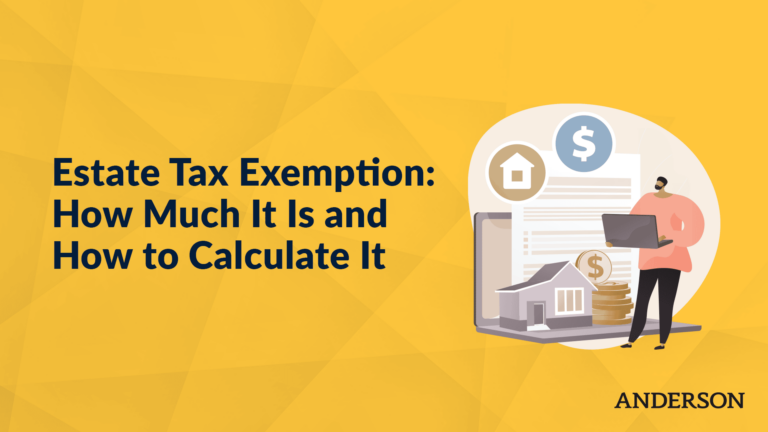In terms of end of life planning, you’ll hear a lot about wills and trusts. Many people mistakenly believe these two legal tools are similar, when, in fact, there are a number of major differences. It’s important to know how each one is used in order to ensure that your affairs are handled in the manner you intended.
Will vs Trust: 7 Key Differences
- Probate
- Privacy
- Effective Date
- Cost
- Contestability
- Complexity
- Taxes
It can be difficult to create a comprehensive estate plan that ensures your final wishes are carried out so that each and every loved one or family member gets the assets you intend for them. Many Americans assume that a will is sufficient enough for transferring their nest egg to their heirs when an estate planning attorney will often recommend establishing a trust instead.
What is a Will?
A last will and testament (also often called a final will) is a legal document. This document explains how you would like your assets to be distributed upon death. A will also details what type of arrangements you would like to be in place for the care of any minor dependents you have.
Someone who dies without a will is said to die intestate, and their assets will have to go through a process called probate. A person who dies testate has left behind a will.
Laws will vary from state to state regarding what makes a will legally enforceable. In some states, a will must be signed by two witnesses. Other states allow for an oral or nuncupative will in select circumstances, such as imminent death. However, by and large, a will is at least one estate planning document you should have and it should be prepared by competent legal counsel.
Tax & Asset Protection Workshop
Learn about Real Estate & Asset Protection at our next
FREE LIVE STREAM
What is a Trust?
A trust is an asset protection arrangement where a trustor places their assets into the care of a trustee, who administers the trust for beneficiaries. More specifically, a living trust is an arrangement you make while alive.
The trustee is going to be someone with fiduciary responsibility, such as a lawyer. The trustor can be one of the beneficiaries, which allows them to enjoy the assets in the trust during their lifetime.
A revocable trust is one that can be changed by the trustor (also called a grantor). An irrevocable trust cannot be changed without the express consent of all beneficiaries. To that end, an irrevocable trust is less flexible, but it can offer more tax advantages and more protection from creditors. Most individuals using the legal vehicle of a trust will use a revocable trust, but some high-net-worth individuals will leverage the tax shelter afforded by the irrevocable trust.

What’s the Difference Between a Will and Trust?
While wills and trusts are both end-of-life planning tools, there are a number of differences between them. These differences include:
1. Probate
A will does not help you avoid probate. Probate is a legal process where the assets of someone who dies are partitioned according to the directions of the will. If someone dies without a will, they are said to die intestate and their assets are partitioned according to the inheritance laws of the state.
These laws will depend on whether the state is a community property state or common law state. In community property states, for instance, all property owned by a married couple and acquired during their marriage is owned 50-50. Upon the death of one of the couple, half the property will go to the surviving spouse. This leaves the other 50% to be claimed by relatives in accordance with the state-specified inheritance succession laws. In common law states, acquired marital property is not assumed to be owned 50-50, but most states will award a surviving spouse one-third to one-half of the estate.
In any case, specifying how you want assets to be distributed with a will can avoid your property from being inherited by parties you don’t want to include. A will can also make certain that your assets do not revert to the state. By contrast, a trust will help your heirs avoid probate, so the state basically doesn’t get anything. Also, a trust is often better fortified than a will against legal actions. The encroachments of opportunists or disgruntled parties are denied because the trust is managed by a third-party fiduciary, like a lawyer.
2. Privacy
A will is a private document created during your lifetime. However, after death, it can become public. This can expose your list of assets to creditors and any disgruntled parties who may decide to contest the will.
As the old saying goes, you don’t know how many relatives you have until you’ve won the lottery. While that’s not exactly the case here, many people would be dismayed to learn how likely it is for some parties to step forward and try to take assets from being inherited by your desired parties.
By contrast, a trust affords more privacy because it is not recorded and not made a matter of public record. Take note, however, that if someone contests the trust in a court proceeding, the contents of the trust may be attached to a record of the trial. Overall, though, a trust provides a much better blanket of privacy for the trustor and beneficiaries.
3. Effective Date
The effective date is when a legal document becomes enforceable. In the case of a will, this happens after your death. By contrast, a living trust or revocable living trust can take effect during your lifetime. There are many benefits to having a living trust in place while you are still alive.
For one, what if, for any reason you become mentally incapacitated? The assets in the trust will continue to be maintained according to your wishes. A will cannot guarantee that as long as you are still alive. Another benefit to the trust in regards to its effective date is that you can continue to enjoy the assets in the trust while also enjoying its legal protections.
4. Cost
A will does not cost much to have drafted and recorded in most states, but a trust may cost more to set up initially. In addition to the setup, the fiduciary who serves as the trustee may charge a trust management fee of one to two percent of the assets in question. However, for the security and peace of mind that a trust offers, this is a nominal fee. Consider, for instance, that something like a dynasty trust can help avoid estate taxes, which in some states can be as high as 20 percent.
5. Contestability
It is easier to contest a will than it is to contest a trust. One of the simplest reasons is because a trust involves more active participation from the fiduciary. A fiduciary, like a lawyer, who is well versed in the law and strategies for fending off contenders.
As mentioned, wills are also public information, which creates more opportunities for contestation. Where a trust is private and makes it more difficult for the directives of the trust to be brought into contestation. You can learn more about defending your assets against creditors and potential claimants by attending our Asset Protection Workshop.
6. Complexity
A will can be a fairly simple affair. In most states, you can even write your own will. However, it would help to have a lawyer assist in its drafting.
By contrast, a trust is a much more complex document, so it’s not one you would be able to set up by yourself. An estate planning lawyer can help you navigate the difference between revocable vs irrevocable trust. Each of these has its particular pros and cons that depend on your financial picture and goals.
7. Taxes
A will cannot help you avoid taxes because it does not go into effect during your lifetime. After death, however, a will may help certain parties in certain situations avoid taxes and fees. For example, if a will specifies the inheritance of your assets by your spouse, inheritance taxes can be avoided. By contrast, if a person dies intestate and their assets are partitioned according to state inheritance laws, there may be taxes that eat away at the principal. By contrast, a trust can help avoid taxes, both after death and even during your lifetime.
Remember that assets placed into the care of a trust don’t really belong to you on paper, even something like a real estate portfolio. They belong to the trust, even if the trustee manages these assets with you as a beneficiary. Through this type of arrangement, one may be able to keep themselves in a lower tax bracket, but you will need to consult with an attorney to hash out the specifics.
Regarding inheritance, a revocable trust does not really avoid taxes; only an irrevocable trust can do that. But as mentioned, an irrevocable trust is much less flexible. So the choice between the two is also something that would best be discussed with an estate planning lawyer. This will vary on a case-by-case and state-by-state basis.

Do I Need a Trust or a Will?
It’s a common misconception that a will can help someone avoid probate proceedings. While it’s true that having a will can help make the process of probate court less onerous, probate is just the process whereby the total asset basket is partitioned to successors, whether or not someone has a last will and testament.
By contrast, a trust document will ensure that trust assets do not go through probate court and remain confidential. If you feel like your estate plan may be contested by relatives, either directly or by interested parties fighting over their interpretation of your last wishes, the estate planning tool of a trust may be best for you.
Another consideration is avoiding things like the estate tax. Most states do not subject surviving spouses to an inheritance tax. It is important to note that an inheritance tax can be levied upon other relatives with beneficiary designations.
An estate planning lawyer can set up a trust in accordance with state law so that your heirs maximize the benefit from what you bequeath. You can even have life insurance paid into a trust, which is an often-overlooked facet of estate planning basics. While this is not necessarily relevant for a standard lump sum payment, if you had universal or whole life policies that accrued interest, that interest can be taxed, unless it’s paid into a trust.
Will and Trusts Are Two Very Different Estate Planning Tools
Wills and trusts are often used in conversations about estate planning, but they are very different legal tools.
A will is a legal document that specifies your last wishes. It is also a public document that can open itself up to contention. Additionally, the assets it specifies for partition can be taxed in certain situations.
By contrast, a trust is a legal vehicle that puts your assets into someone else’s care while you are still alive, so that upon your death, they are not necessarily transferred to your heirs, but managed for their benefit by a trustee. As such, a trust creates an intergenerational legacy for asset protection and wealth transfer.
You can learn more about protecting your wealth, both upon your death and throughout your lifetime, by meeting with one of our asset protection experts. Don’t put peace of mind off another day, request your free asset protection strategy session today!
Free Strategy Session with an Anderson Advisor
Receive a detailed risk assessment to assist in lowering problem areas that could wipe out all of your assets with one wrong move. Speak with an Anderson Professional Advisor to get your FREE Strategy Session. Limited-Time offer: FREE (a $750 value.)
As always, take advantage of our free educational content. And every other Tuesday we have Toby’s Tax Tuesday, a great educational series. Our Structure Implementation Series answers your questions about how to structure your business entities to protect you and your assets.
Additional Resources:
- Claim your FREE Strategy Session, and learn how Anderson Advisors can protect your assets.
- Join our next Tax & Asset Protection event to learn more advanced tax minimization & entity structuring strategies
- For all things investing, check out the Infinity Investing YouTube channel
- Subscribe to our YouTube channel to make sure you never miss the latest strategies & updates











